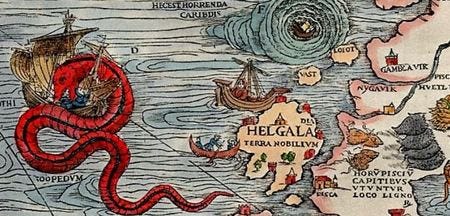Unknowns
Taming Dragons.
The more we use AI and move beyond the hype, the clearer the spaces it leaves unoccupied become. It is in these spaces, rather than the miserable, fractional reduction of the costs of existing business models, that the future will be shaped.
Whilst what we don’t know far exceeds what we do, leadership and power often involve the deliberate management of what we do.
Censorship, secrecy, distraction, flooding, framing, omission, and propaganda are all used to shape the field on which we conduct politics, conflict, and business. By managing what people don’t know, those in power can prevent dissent, defer scrutiny, simplify complexity into loyalty-friendly stories and maintain systems of inequality as the natural order of things.
Robert Proctor names it agnotology, the deliberate production of ignorance.
Technology plays an important part. From the invention of writing to printing and the internet, it has enabled both the control and dissemination of what is known, what is speculated, and what we wish people to think. Up to now, though, it has been people at the heart of that, pulling the levers of power, plotting, planning, scheming and strategising how knowledge shapes the world.
AI appears to be changing that, by not only providing access to knowledge but also facilitating its widespread interpretation and manufacture on a scale we have never seen before. Everything we have relied on is becoming tenuous, as sophisticated propaganda, in every form of media, becomes a sport available to all.
“Before mass leaders seize the power to fit reality to their lies, their propaganda is marked by its extreme contempt for facts as such, for in their opinion fact depends entirely on the power of man who can fabricate it.”
Hannah Arendt, The Origins of Totalitarianism
It feels as though we have gone full circle, as communication technologies have gone from dissemination to dissembling, and our relationship to the source of our information becomes the critical factor in the discernment we rely on to make decisions. In the spaces between the known, the unknown, and the unknowable, we are entering a transition phase, much like when ice turns to water and water to steam.
Thomas Kuhn wrote that paradigm shifts are not recognised by those living through them, and often referenced Max Planck, who noted that “A new scientific truth does not triumph by convincing its opponents and making them see the light, but rather because its opponents eventually die, and a new generation grows up that is familiar with it.”
The same is true, I believe, of large organisations and our current form of capitalism. They will not be “defeated”, nor will they “see the light”. Currently, they are a constraint that we must live with as individuals until they expire.
What we can do, though, is to develop the new paradigms that will replace them, so that when they face a terminal crisis, which they will, we can bear in mind one of the few useful things Milton Friedman said:
“Only a crisis – actual or perceived – produces real change. When that crisis occurs, the actions that are taken depend on the ideas that are lying around.”
As New Artisans, I believe our job is to craft the ideas that will be found lying around, ensuring they are healthy enough to grow when the opportunity presents itself.
We do not know what the ideas we need are yet - we are still in the early stages of transition. What is needed, I believe, are spaces where ideas without goals can grow and evolve. Early stage concepts as raw material for prototypes, much as the Wright Brothers found their way to powered flight, starting with observation of birds, to small-scale incremental glider experiments, to wind tunnel analysis, to designing propulsion and control, to integration and powered flight. They didn’t know what powered flight would look like when they started.
I think of the spaces in which these ideas are grown as ateliers, the craft workshops of the Renaissance, or the Café Guerbois, where the Impressionist movement was born. Small, intimate places dedicated to surfacing and realising an idea, characterised by two qualities: commitment and connection.
In the way things often work, I saw two excellent posts on the idea of connection in the last week, one by Steven Shepherd the other by Gaping Void.
As Artisans, crafting new ideas is firstly about ourselves, and secondly, the small, trusted groups of those to whom we are truly connected.
Sharing ideas that matter to us with those we do not know well, before they are ready, is wasteful vanity.
Ideas that matter are synthesised from unknowns, whether mislaid or to be hewn out of the vast mines of ignorance around us, in the company of those who support us.
What follows explores the four distinct types of ignorance we navigate daily, why breakthrough ideas emerge from the collision of puzzle pieces held by different people, and how small groups are already creating spaces where tomorrow's transformative ideas take shape. It also addresses why AI makes our capacity for productive not-knowing more valuable, not less, and how we can begin cultivating these capacities in community with others who understand that the future belongs to those willing to work skillfully with what they don't yet know.



